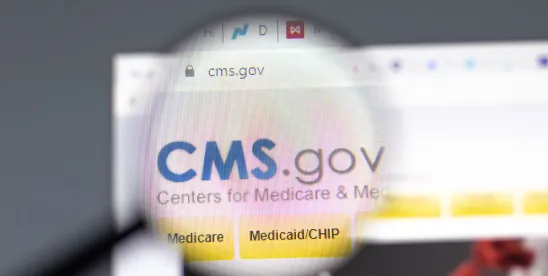As we previously reported, effective November 5, 2021, the Centers for Medicare and Medicaid Services (CMS) issued an interim final rule (the Rule) requiring full COVID-19 vaccination for staff and others at Medicare- and Medicaid-certified providers and suppliers as a Condition of Participation by January 4, 2022.
On November 10, 2021, a coalition of ten states lodged a complaint in the U.S. District Court for the Eastern District of Missouri (the “First Complaint”), which is subject to appeals in the U.S. Court of Appeals for the Eighth Circuit, seeking to set aside the Rule. On November 17, 2021, the U.S. District Court for the Eastern District of Missouri granted Plaintiff’s Motion to Expedite Briefing — requiring Defendant to file their response to the Plaintiffs’ Motion for Preliminary Injunction by November 22, 2021; and Plaintiffs to file their reply by November 23, 2021.
On November 15, 2021, a coalition of twelve different states filed a similar complaint (the “Second Complaint”) but, perhaps strategically, filed it with the United States District Court for the Western District of Louisiana, Monroe Division. An appeal of the Louisiana District Court’s decision would go to the U.S. Court of Appeals for the Fifth Circuit, which recently stayed the OSHA vaccination Emergency Temporary Standard (ETS), reported here.
The Complaints
The First Complaint was filed by the States of Missouri, Nebraska, Arkansas, Kansas, Iowa, Wyoming, Alaska, South Dakota, North Dakota, and New Hampshire. The Second Complaint was lodged by the States of Louisiana, Montana, Arizona, Alabama, Georgia, Idaho, Indiana Mississippi, Oklahoma, South Carolina, Utah, and West Virginia. In total, twenty-two states joined one or the other of the complaints.
Both complaints make similar arguments. To summarize, the States’ Attorneys General argue that CMS’s statutory authority does not authorize it to impose a vaccine mandate. They also attack the implementation of the Rule, which was not subject to a notice and comment period as provided by the Administrative Procedure Act. This period, usually sixty days, generally allows for interested parties to participate in the rulemaking process by submitting written data, views, or arguments before a rule is promulgated. They further argue that the Rule is arbitrary and capricious because CMS failed to consider relevant factors in implementing the Rule, such as staff shortages, particularly in rural hospitals, alternatives to mandates (e.g., testing), and weighing an individual’s right to refuse medical treatment and failure to consult with the States under the Social Security Act where a rule would impact rural hospitals, among other contentions.
The States also make general arguments with respect to the Federal Government’s power. First, the States’ Attorneys General argue that the Rule improperly allows for the Federal Government to have authority over states and their citizens, including Medicare state surveyors who review compliance by certified providers. They also contend that the Rule violates Congress’s Spending Power in that Plaintiffs’ receipt of federal funds is conditioned on compliance with the Rule.
The States seek to set the Rule aside and request permanent injunctions to stop the imposition of the Rule’s vaccine requirements.
What Employers Subject to the Rule Should Do Now
Unless or until there is a stay of the Rule, covered facilities should consider moving forward with preparing the policies and procedures to comply with the Rule, including collecting vaccination information and providing a documented exemption application process based on federal law requirements (i.e., medical and religious accommodations under the Americans with Disabilities Act and Title VII of the Civil Rights Act of 1964). Employers with union-represented employees should also consider discussing with the pertinent unions any potential impact the Rule may have on their represented employees.
Taking these steps, as discussed in more detail in our previously reported Insight (the first link above), will help ensure timely compliance in the event that no stay is issued.
Kamil Gajda, a Law Clerk with Epstein, Becker & Green P.C., contributed to this article.




 />i
/>i

